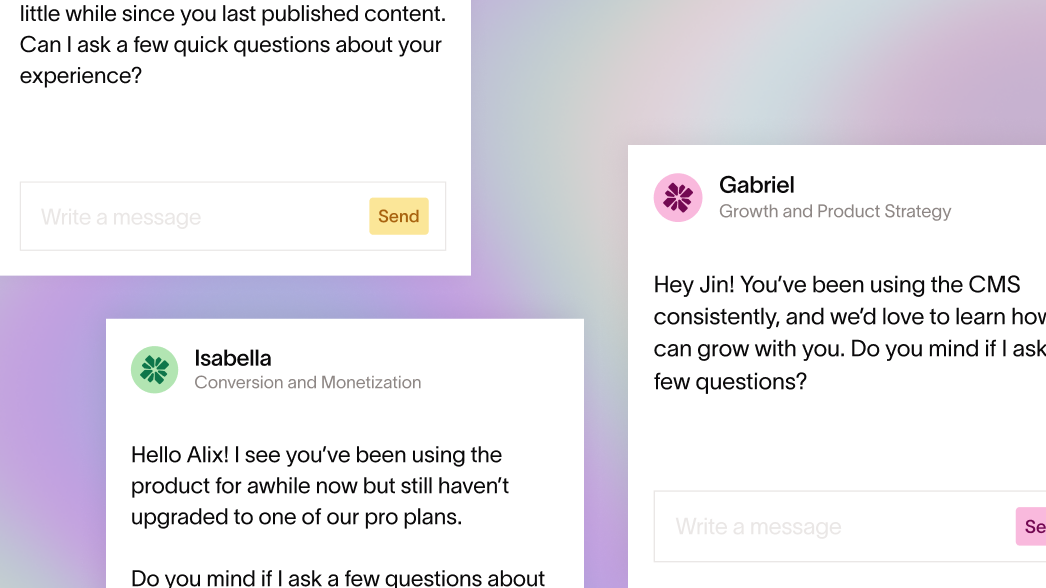
Let's be honest—you're not talking to enough users. Nobody is. Even teams with dedicated researchers struggle to capture in-the-moment feedback at scale, and most teams don't have a researcher at all. The result? Product decisions based on gut feelings, vocal minorities, and that one customer success anecdote that gets repeated in every meeting.
We're launching Coherence to fix this. It's an AI-powered conversational survey platform that conducts real conversations with your users, learns from their experiences, and synthesizes insights across hundreds of interactions. Think of it as deploying a team of researchers who never sleep, never get tired of asking "why," and can adapt their approach based on what they're learning.
The setup is straightforward. You create an AI survey using natural language. Pick a personality that matches your research goals—from the creative Explorer that uncovers unexpected insights to the focused Analyst that collects structured data. Then point it at real problems, for example: why aren't users converting, what's driving churn, which features are actually solving problems versus creating new ones, what could you have done better at an event. Drop a link in your app or email it to users, and the AI starts conducting interviews immediately. As responses roll in, you can tweak the prompts to dig deeper into emerging patterns without starting from scratch.
Surveys are a perfect yet under-leveraged AI use case. It requires maintaining context across open-ended conversations, adapting questions based on responses, and pattern-matching across disparate qualitative data—all things LLMs handle well. The hard part isn't getting an AI to ask questions; it's getting it to ask the right follow-ups, recognize when to probe deeper, and synthesize hundreds of conversations into actionable insights. That's what we've built.
You get insights piped directly to Slack or email daily, not quarterly. No more waiting months for a research report that confirms what you already suspected or worse, tells you about problems you could have fixed ages ago. Just continuous learning from real people, at a scale that would be impossible with traditional research methods. And with a nuance and depth that traditional form-based surveys just cannot achieve.